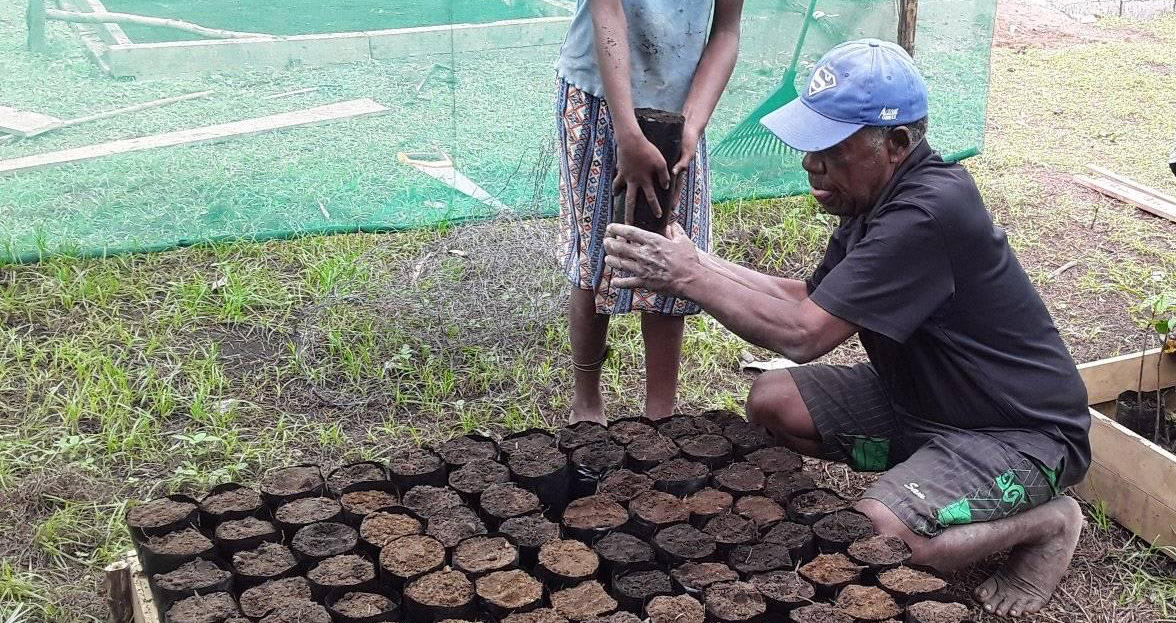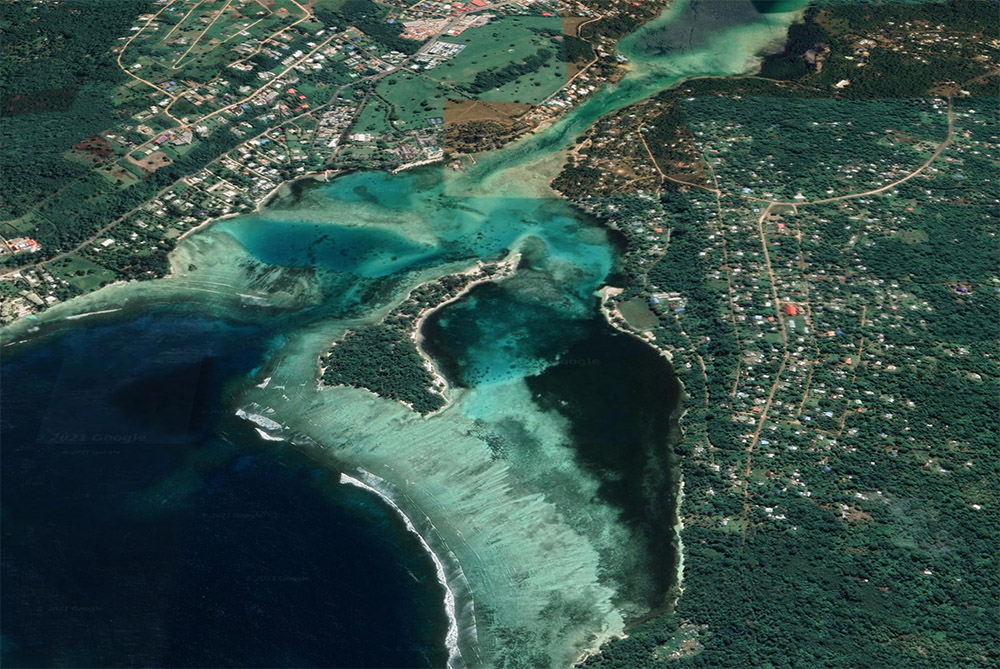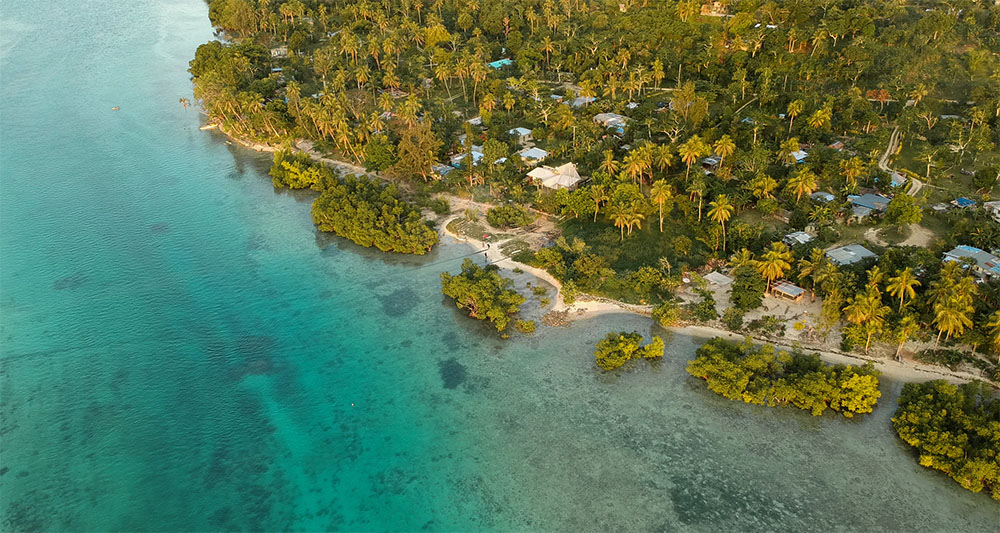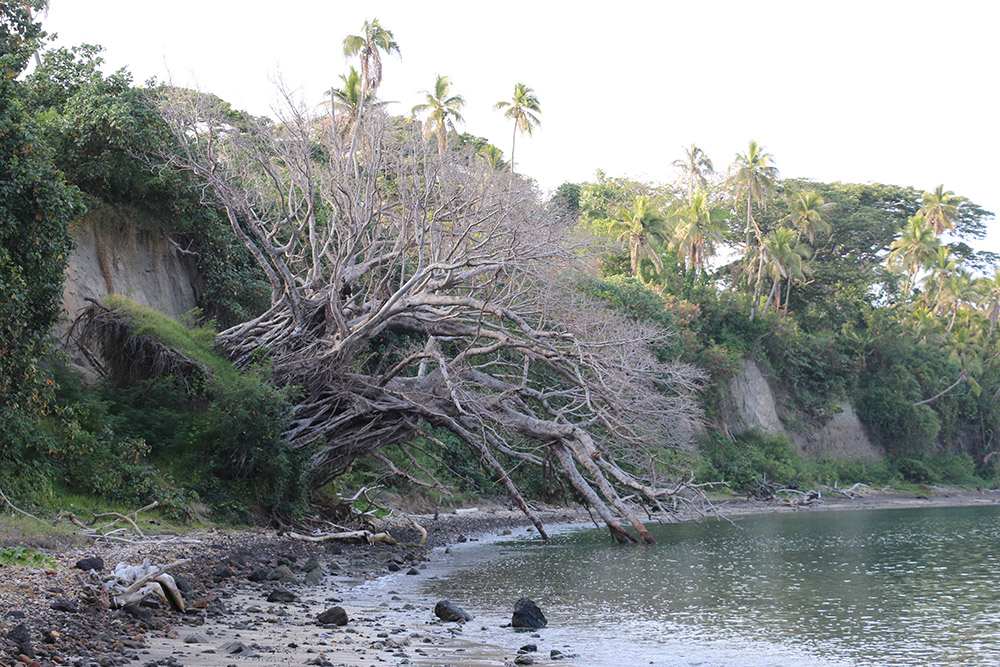
EcoAdapt in the Pacific
Ecosystem based adaptation approaches to climate change in the Pacific
Ecosystem-based approaches to climate change adaptation in the Pacific
Phase 1 final report
Pacific EcoAdapt phase 1 report is published and available to download (open access).
Pacific Islanders have creatively adapted to their environments for millennia, but anthropogenic climate changeanthropogenic climate change Relatively rapid change in the global climate, oceans, and Earth system, brought on by an increase in greenhouse gases from human activity, in particular, the burning of fossil fuels, deforestation, and agriculture. is presenting an existential threat in the Pacific. Island nation states are at risk of losing coastal habitats and the services they provide and critical infrastructure and property. Climate change will also impact on the cultural practices and identity, which are intertwined with local environments.
The impacts of climate change also interact with rapid and ongoing capital-intensive development, which is shaping the physical environment, as well as traditional land and water management processes.
The majority of Pacific Islanders live in rural areas and are highly dependent on healthy ecosystems to provide food, medicine, and clean water. These ecosystems also support spiritual and cultural practices, and support health, wellbeing, and livelihoods.
As climate change and development decisions change the environment, how local people interact and adapt to their environments and development and adaptation planning and policies need to consider the impacts on ecosystems and biodiversity, the extent to which they disrupt natural processes, and the benefits they provide for the sustainable livelihoods of local communities.
The Pacific EcoAdapt Program
The Pacific EcoAdapt Program is an initiative of the Climate Action Beacon, Griffith University, Queensland Australia in collaboration with the Tafea Provincial Government, National government agencies, the University of South Pacific, local communities, and other stakeholders.
Focusing on Vanuatu as a case study, the program of research aims to generate new knowledge at the local level to better understand the interactions of the physical, ecological, social, cultural, economic, policy and governance activities and factors that shape communities' ability to adapt to climate change.
Through partnership with local and national government agencies and organisations, the research is supporting better planning and decision-making in the coastal zone.
EcoAdapt video
Integrated, multi-disciplinary approach to climate change in Pacific island communities
The Pacific EcoAdapt Program draws on the latest research from across a range of disciplines including coastal assessment and modelling, micro-economics, tourism studies, social sciences, systems dynamics modelling, and more, to provide an interdisciplinary approach to real-world problem solving. Watch the video that explains our approach to the Pacific EcoAdapt Project.
Latest published research
Meet the team
The Pacific EcoAdapt researchers are a multidisciplinary team of world class scientists, engineers, social scientists and practitioners generating new knowledge about climate change in the Pacific.
Engagement activities
Pacific EcoAdapt has undertaken diverse activities to maximise collaboration with Pacific Island communities and government stakeholders to integrate research outcomes into practice and support long-term sustainable change. Strategies including co-design of research and community dialogues, providing education and training opportunities and translating research outputs into policy support.
Research publications
The Pacific EcoAdapt Program has produced more than twenty different publications across a range of fields including ecosystem assessments, systems dynamics modelling, benefit-cost analysis of adaptation options, analysis of community perspectives on natural resource management, and more. Explore the leading edge research produced by the Pacific EcoAdapt Program in the link below.



